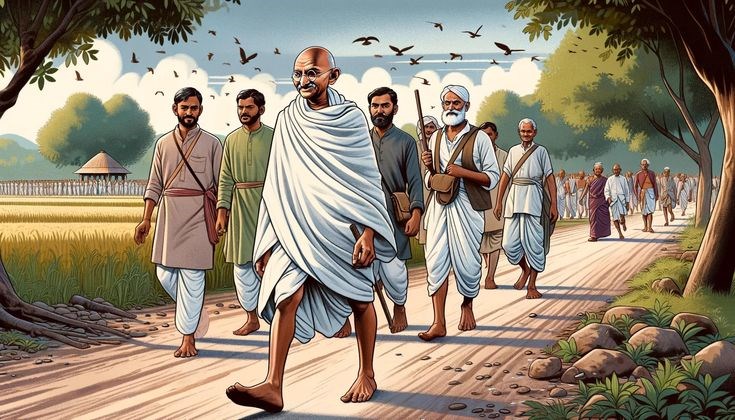
26-Aug-2025 , Updated on 8/26/2025 3:28:55 AM
Mahashay Rajpal's assassination and Gandhi's role.
Background of Mahashay Rajpal’s Assassination
Mahashay Rajpal, a publisher in Lahore, received threats after he published the book Rangeela Rasool in the 1920s. The publication angered portions of the Muslim community and Rajpal was threatened to death on several occasions. Even with the legal action and pressure the court did not find any such violation in the law and Rajpal did not reveal the name of the author. He was assassinated by Ilm-ud-din, a young carpenter outside his shop on 6 April 1929. Gandhi denounced the murder and insisted that taking a life for an article was not justifiable and morally unacceptable.
Context of Religious Tensions in India
The murder of Mahashay Rajpal in 1929 embodied the aspect of religious tensions in India. Rajpal, one of the publishers in Lahore, had published a rather controversial book that offended some members of the Muslim community, which resulted in his assassination by Ilm-ud-din. Mahatma Gandhi criticized the killing and explained that there could not be any justification of violence. He also made it clear that freedom of expression has to be utilized with care and none should insult any religion. The reaction of Gandhi to this situation emphasized the significance of mutual respect between communities and that conflicts can be solved without using violence.
Gandhi’s Position on Free Expression
An act of assassination of Mahashay Rajpal in 1929 has brought serious questions on the front of free expression and religious tolerance. Rajpal, a publisher of a controversial book, was assassinated because of publishing offensive material. Gandhi criticized both the murder and claimed that violence was never the answer to writings, even though they are objectionable. He advocated freedom of expression but would remind that it should be done in the spirit of responsibility and respect. Gandhi opposed use of offensive material, but was committed to the principle that offensive material must be challenged, but in the lawful methods of peacefully protesting, arguing or even legal recourse. His stand highlighted these points as freedom of expression should be respected but the differences are to be solved without violence.
Gandhi’s Response to the Assassination
The murder of Mahashay Rajpal in 1929 was a real source of trouble. Ilm-ud-din assassinated Rajpal who was the publisher of a controversial book in Lahore. Gandhi passionately criticised the action and said that violence was not the answer to religious or social problems. He stressed that the ethics of religion were not allowed to take away someone by killing. Gandhi asked people to reject revenge and opt to embrace peace and tolerance. Moreover, he emphasized that the difference should be solved by means of dialogue and understanding and not fear and violence.
Impact on Society and Discourse
The assassination of Mahashay Rajpal in 1929 had a profound social and cultural impact and was an event discussed publicly in colonial India. His killing happened because of a controversial book, which he had published that offended religious sentiments and some people resorted to unrest and anger. The event also emphasized on the fact that religious matters could result in tensions in the society and even bloodshed. It also gave rise to the discussions on freedom of expression and the position of publishers. Gandhi denounced the murder and it became clear that violence would never-ever resolve such provocative writings. His position made people act in a non-violent and peaceful way and within the framework of the law, contributing to the emergence of the debate on tolerance and peaceful reconciliation.

Content Writer
Hi, I’m Meet Patel, a B.Com graduate and passionate content writer skilled in crafting engaging, impactful content for blogs, social media, and marketing.
Join Our Newsletter
Subscribe to our newsletter to receive emails about new views posts, releases and updates.
Copyright 2010 - 2026 MindStick Software Pvt. Ltd. All Rights Reserved Privacy Policy | Terms & Conditions | Cookie Policy